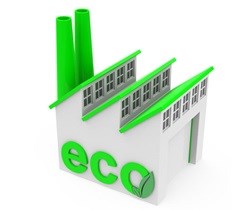There are signs that forward-thinking African businesses are beginning to realise that going green saves costs and boosts employee productivity, something on which leading employers across the world appear to have already made up their minds.
According to recent statistics gathered by the Top Employers Institute, which certifies excellence in working conditions throughout the African continent and internationally, 73% of top employers have environmental protection programmes or initiatives in place.
"As organisations begin to understand the benefits of green buildings and a growing body of research supports the connectivity between sustainability and the bottom line, we are seeing more and more corporations integrating green business practices into the way they run their businesses," says Samantha Crous, regional director at the Top Employers Institute.
Employee productivity
Green buildings are energy and water efficient, emit less carbon dioxide and make good use of space and design, all of which have been shown by studies to be good for employee productivity, health and morale.
It is a principle that is slowly taking root in Africa. Consider the United Nations Environment Programme (UNEP) office in Gigiri, Kenya, which boasts 6,000m² of solar panels, probably Africa's largest roof solar panel.
Nigeria's first eco-friendly building, the $65m Lagos office complex, Heritage Place, is currently under construction and promises a 30% to 45% reduction in energy usage compared to other buildings in Lagos. The complex will, for example, recycle water and use lighting with automatic presence detectors as well as maximising natural light and ventilation. It will be the first commercial building in Nigeria to achieve the Leadership in Energy and Environmental Design (LEED) certification.
SA leads the way
South Africa is leading the way for green buildings on the African continent, says Crous. For example, Unilever, a multinational consumer goods giant acknowledged for its sustainability efforts, with a presence in over 19 African countries and number one Top Employer in South Africa 2014, has various green initiatives under its Sustainable Living programme.
By using teleconferencing in 26 countries, Unilever eliminated the need for 14,500 short-haul flights and over 23,500 long-haul flights. This has meant a saving of 113,500 tonnes in carbon dioxide emissions during the year and an estimated saving of close to R596m.
Another Top Employer in South Africa and sub-Saharan Africa, EY, has a green building as its headquarters in Johannesburg. The office features innovative working spaces to promote productivity and inventive design to preserve energy, water and waste, and to integrate natural light from outdoors into the core of the building.



















































